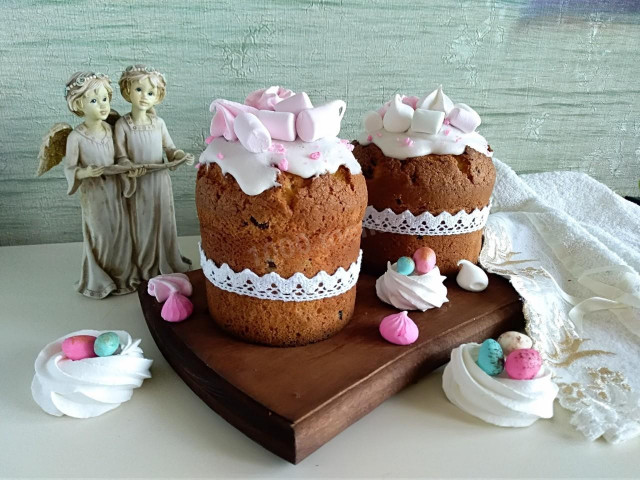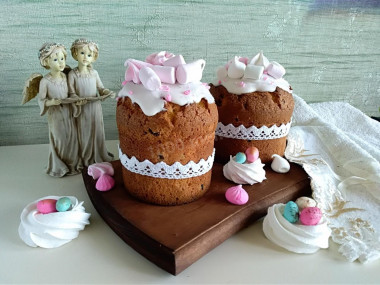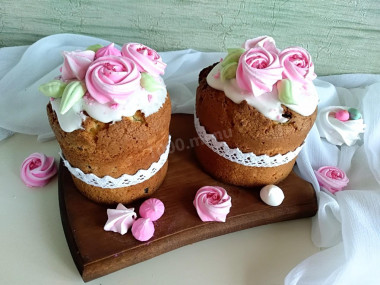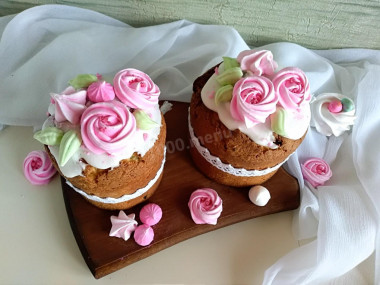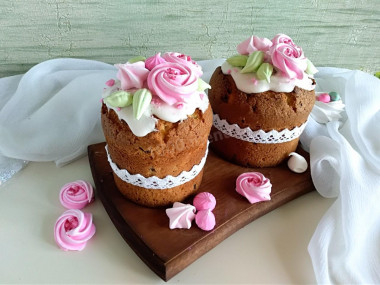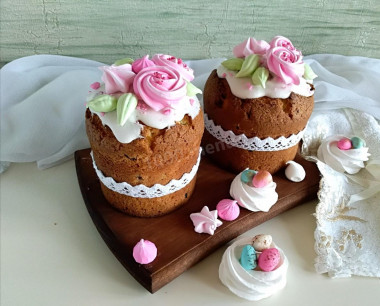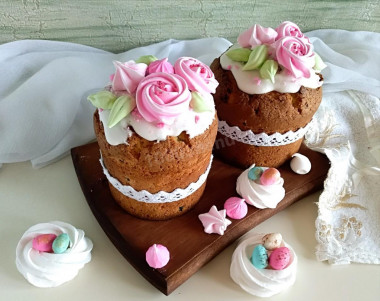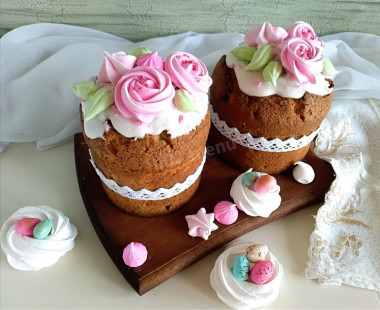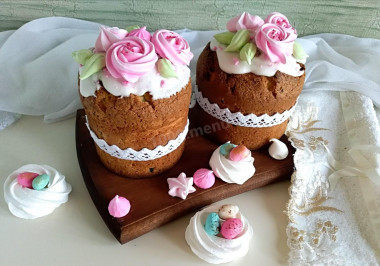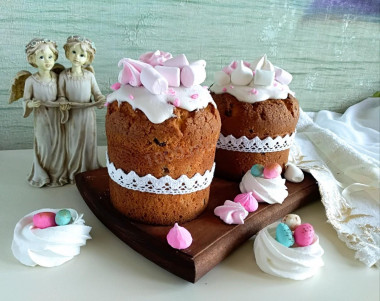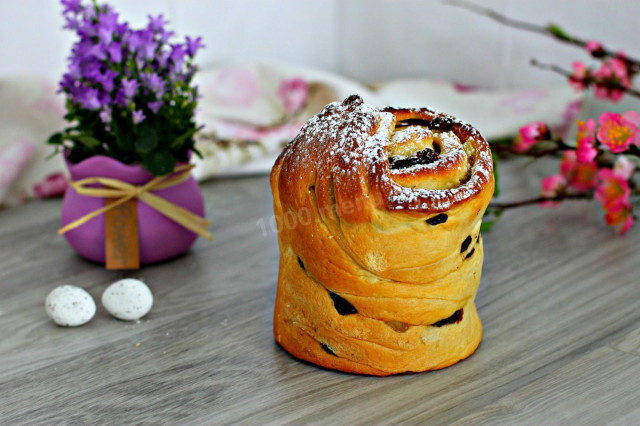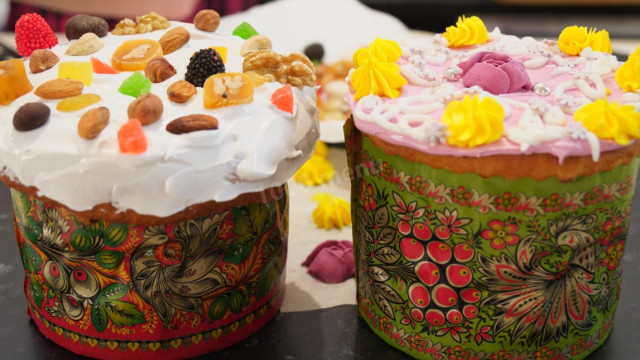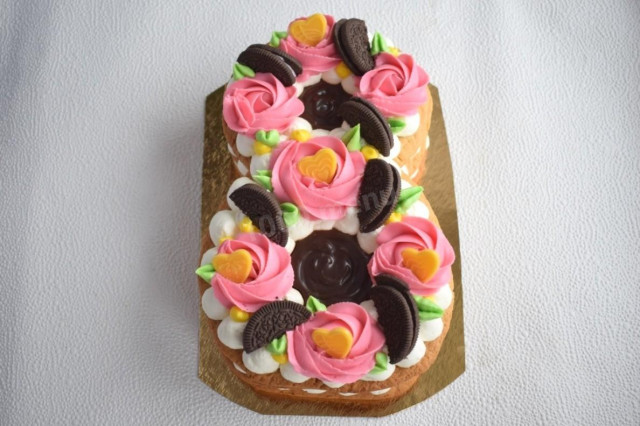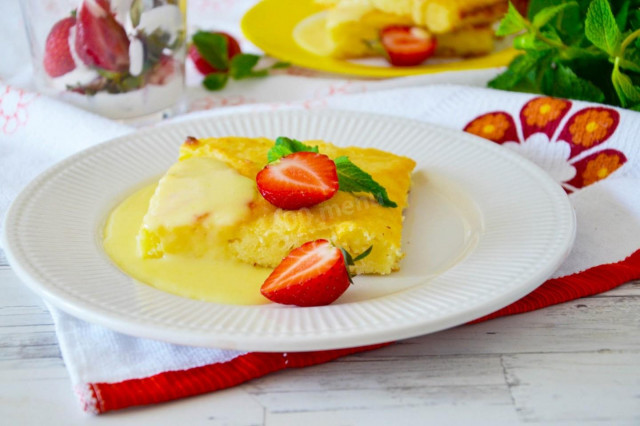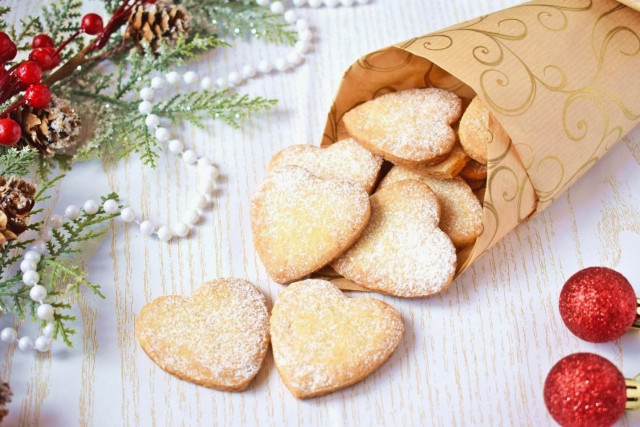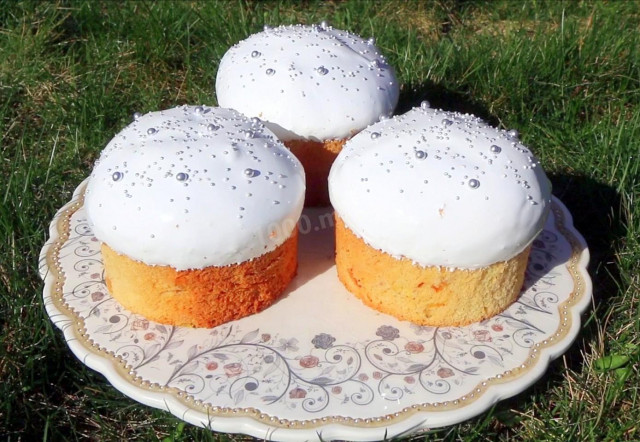Composition / ingredients
Step-by-step cooking
Step 1:
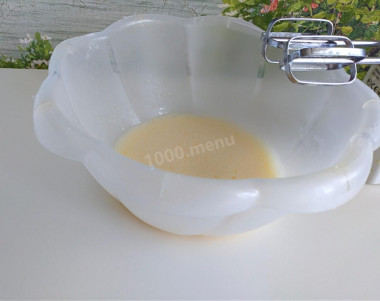
To begin with - smile! Yes, yes - I'm serious, cakes need to be cooked with bright thoughts and a good mood, then they will definitely turn out! I checked. So we need to get all the necessary ingredients from the refrigerator in advance - they must be at room temperature. Beat the eggs in a bowl to a fluffy foam (to beat better, you can add a pinch of salt).
Step 2:
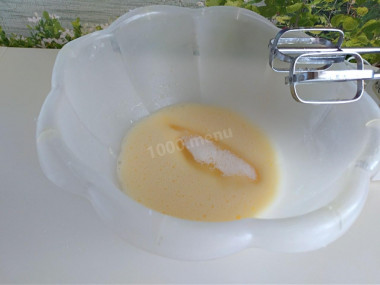
Continuing to beat, gradually pour sugar and vanilla into the rain. Beat for about five minutes until the mass increases in volume. What is the best way to beat? This can be done with a standard mixer or blender with a whisk attachment.
Step 3:
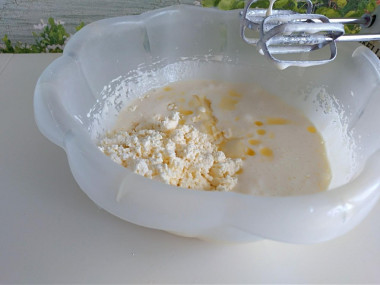
Add melted and cooled to room temperature butter and cottage cheese with 9% fat content. Cottage cheese can be pre-ground through a sieve. Whisk until smooth without lumps.
Step 4:
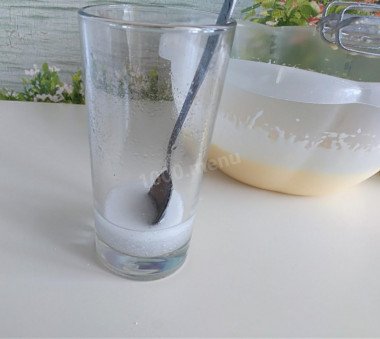
Pour half a teaspoon of soda and 3 tablespoons of vinegar into a glass, extinguish and add to the dough (if this amount of vinegar scares you, you can add one and a half or two spoons, although it shouldn't scare, I've been baking these cakes for a long time and always add three tablespoons of vinegar - vinegar evaporates during a chemical reaction and leaves no taste or smell). The mixture will sizzle and foam, as it should. This procedure will save the baking from the taste of soda, at the same time make it lush.
Step 5:
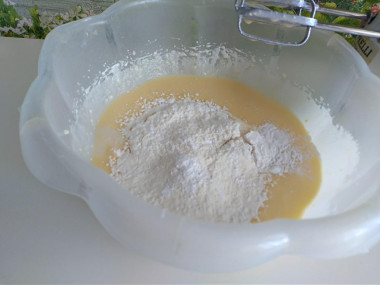
Take a third of the flour (pre-sifted), add a teaspoon of baking powder to it, also add to the dough and whisk at low speed. Do this carefully so that the dough does not splatter. Do not immediately turn on high speed, and immerse the mixer blades in the mass completely (if possible).
Step 6:
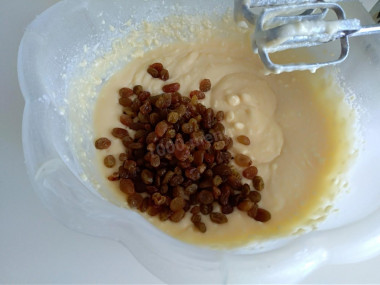
Add washed and dried raisins to the mass. So that the raisins are evenly distributed over the dough and do not stick to each other, they can be rolled in flour, especially if you have sticky raisins. I don't have one, so I didn't do it.
Step 7:
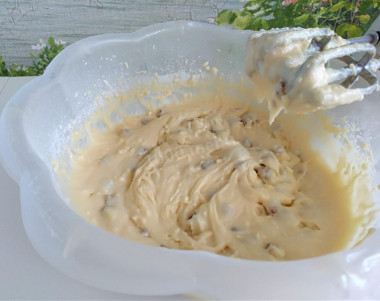
Enter the rest of the flour and go through the dough with a mixer. The dough should have the consistency of very thick sour cream. Flour should interfere well with the mass.
Step 8:
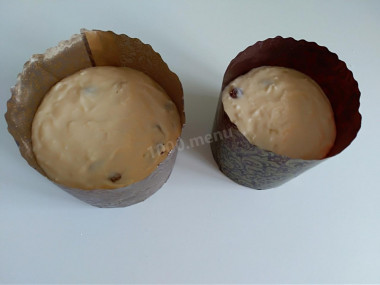
Grease paper molds with oil around the perimeter (I have a diameter of 9 and 12 mm), fill with dough and let stand for 5-10 minutes. Preheat the oven to 200 degrees, send the cakes into it, reduce to 160 degrees and bake for 20 minutes, then increase to 170C and bake for another 30 minutes. After this time, increase to 180C and bake for another 5-10 minutes "until a dry skewer". Immerse a wooden skewer in baking. If it comes out dry, then it's done.
Step 9:
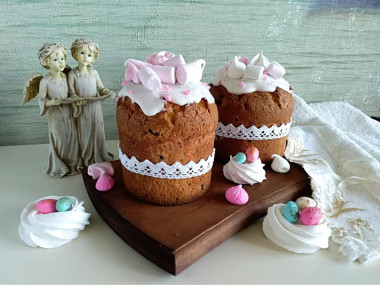
Glaze. Pour a teaspoon of gelatin with a tablespoon of water, leave to swell. In a saucepan with a thick bottom, pour 100 g of sugar and pour 2 tablespoons of water, bring to a boil, reduce the heat to medium, cook the syrup, stirring, for about 5 minutes until thickened. Remove from heat, cool to 60 degrees. Add the swollen gelatin to the syrup, whisk for about 5 minutes. You can cover cakes!
I honestly do not like Easter cakes according to the recipes of our grandmothers, they dry out the next day and only the top with icing remains of the delicious. According to the same recipe, the cake turns out moist, fragrant, delicious and similar to a curd cake. Try it for sure! I'm sure you and your loved ones will like it!
I've tried many recipes for cakes, but this one is the best! I bake cakes according to this recipe for the third year. They don't dry out the next day. Cooking does not require a lot of time and special culinary skills.
--------------------
Be prepared for the fact that flour may need a little more or, conversely, less than indicated in the recipe. You need to focus on how the dough should turn out (dense, soft, liquid, etc.). There is a lot of useful information about why flour, even of the same variety, can have completely different properties,
read this article
Keep in mind that everyone's ovens are different. The temperature and cooking time may differ from those specified in the recipe. To make any baked dish turn out successfully, use the useful information in the article about ovens here
Caloric content of the products possible in the composition of the dish
- Chicken egg - 157 kcal/100g
- Egg white - 45 kcal/100g
- Egg powder - 542 kcal/100g
- Egg yolk - 352 kcal/100g
- Ostrich egg - 118 kcal/100g
- Cottage cheese of 40% fat content - 466 kcal/100g
- Cottage cheese of 20% fat content - 233 kcal/100g
- Cottage cheese of 18% fat content - 226 kcal/100g
- Cottage cheese of 10% fat content - 156 kcal/100g
- Low-fat cottage cheese - 75 kcal/100g
- Cottage cheese with sour cream - 260 kcal/100g
- Fruit cottage cheese - 147 kcal/100g
- Soft dietary cottage cheese - 170 kcal/100g
- Vitalinia cottage cheese - 64 kcal/100g
- Cottage cheese "morning" ( "danone") without sugar - 91 kcal/100g
- Cottage cheese - 156 kcal/100g
- Whole durum wheat flour fortified - 333 kcal/100g
- Whole durum wheat flour, universal - 364 kcal/100g
- Flour krupchatka - 348 kcal/100g
- Flour - 325 kcal/100g
- Granulated sugar - 398 kcal/100g
- Sugar - 398 kcal/100g
- Butter 82% - 734 kcal/100g
- Amateur unsalted butter - 709 kcal/100g
- Unsalted peasant butter - 661 kcal/100g
- Peasant salted butter - 652 kcal/100g
- Melted butter - 869 kcal/100g
- Raisins - 280 kcal/100g
- Kishmish - 279 kcal/100g
- Gelatin - 355 kcal/100g
- Water - 0 kcal/100g
- Vanillin - 288 kcal/100g
- Baking powder - 79 kcal/100g
- Baking soda - 0 kcal/100g
- Table vinegar - 11 kcal/100g

